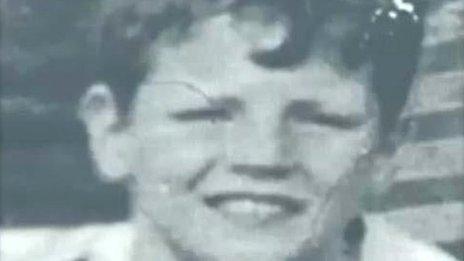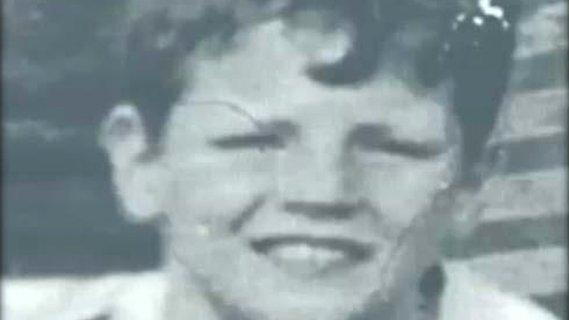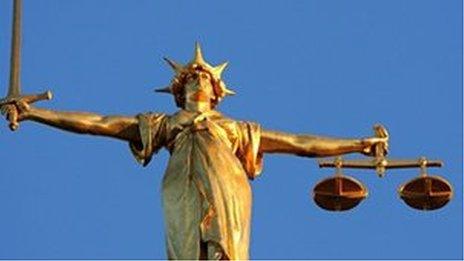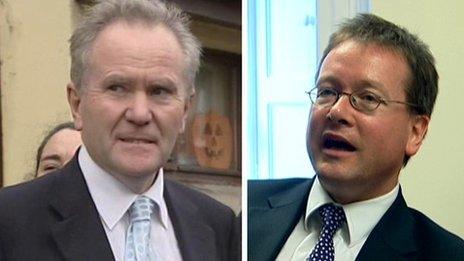Francis Rowntree inquest: Coroner reflects on soldier's health
- Published

Eleven-year-old Francis Rowntree died after he was struck by a rubber bullet
A coroner has said he will reflect carefully on whether a soldier who fired a rubber bullet that killed a boy is too ill to give evidence.
Coroner Jim Kitson said the inquest into the death of 11-year-old Francis Rowntree in 1972 would be "severely hampered" if he could not attend.
He said the man's heart condition had to be a factor when deciding whether to compel him to give evidence.
The coroner told the preliminary hearing it was a "fine balancing act".
Disputed
Francis was playing with friends at the Divis Flats complex off the Falls Road in west Belfast in April 1972 when he was struck on the head by the rubber bullet. He died in hospital several days later.
Controversy surrounds the shooting, with disputed claims about whether the young boy was struck directly or hit by a ricochet, and if the bullet had been doctored to make it potentially cause more injury.
The former Royal Anglian Regiment member who fired the rubber bullet is known to the court as soldier B.
A barrister for the Ministry of Defence told the hearing that soldier B's consultant cardiologist had expressed "significant reservations" about his fitness to attend, in a report produced for the coroner's court.
"It appears on the face of it to be quite a severe condition involving multiple medical interventions over the years," the lawyer said.
He added: "The likelihood of a heart attack or death would be small but not zero.
"There is a significant risk to the health of this man to compel him to give evidence."
A barrister representing the Rowntree family said a number of steps could be taken to make the witness feel at ease.
She suggested the former soldier could give evidence via video-link; there could be regular breaks in the hearing; medical assistance could be on standby and the court could be partially cleared.
She told the coroner: "You know the gravity of the case and you know he's essentially the key witness and very important to the case."
Mr Kitson said: "This is a key witness and clearly the inquest would be severely hampered if this witness is not in attendance, but I'm acutely aware of the impact on this man's health.
"It's a fine balancing act between the two prerogatives and pressures - I will reflect on this very carefully."
The inquest is due to begin on 27 April.
- Published2 February 2014

- Published5 August 2013

- Published11 February 2013
